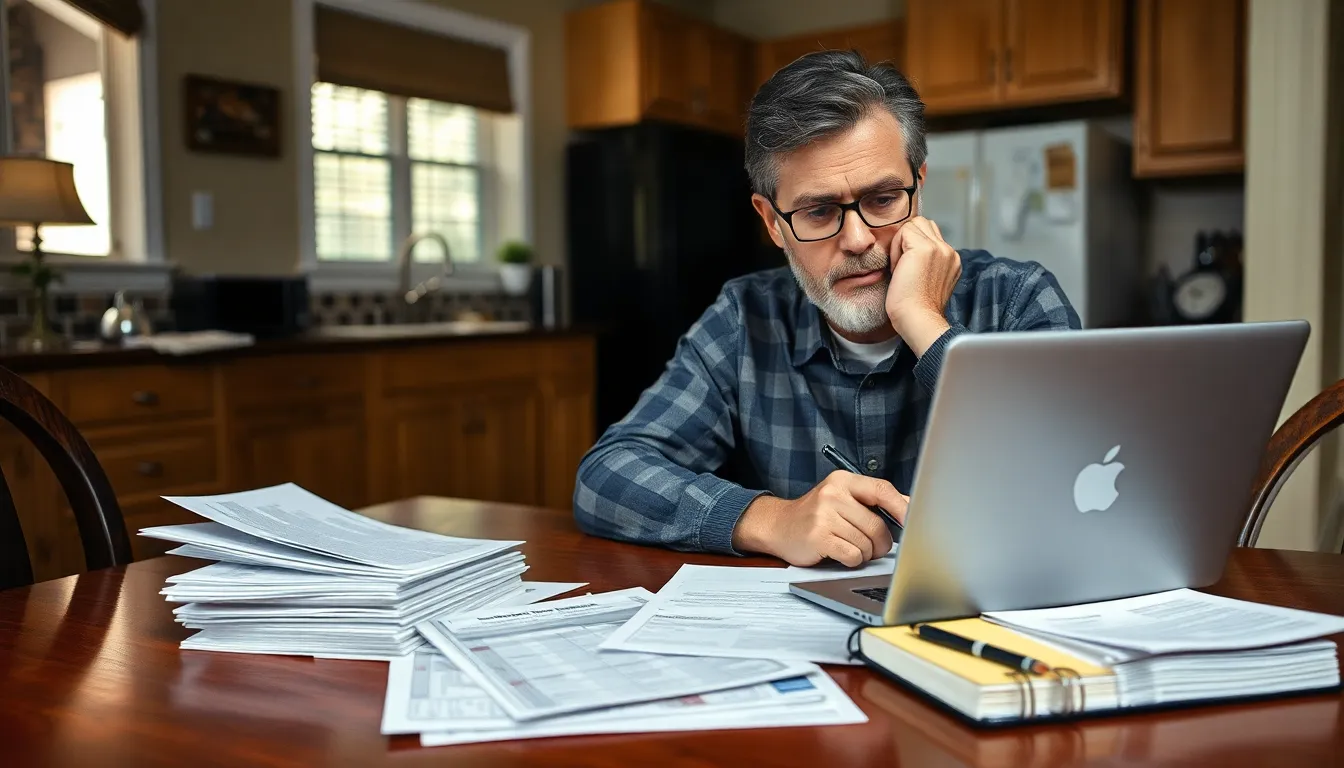Table of Contents
ToggleNavigating the world of taxes can feel like trying to find a needle in a haystack—especially when it comes to contacting your tax collector. But fear not! Reaching out to them doesn’t have to be as daunting as a surprise audit. In fact, it can be a straightforward process filled with opportunities to clear up any confusion and maybe even crack a smile along the way.
Whether you’re facing questions about property taxes or need help with your latest tax bill, knowing how to connect with your tax collector can save you time and headaches. So grab your phone or fire up your email—let’s dive into the ins and outs of contacting your tax collector and make sure you’re not left in the dark when it comes to your hard-earned money.
Understanding Your Tax Collector
Tax collectors play a crucial role in local government finance. They manage the collection of property taxes and other assessments. By ensuring timely collections, they help fund public services like education, roads, and emergency services.
Role of the Tax Collector
Tax collectors oversee the property tax system. They maintain tax records and issue tax bills. Tax collectors handle payment processing and provide receipts. They also prepare reports that aid in financial planning within the community. Access to accurate tax information supports residents’ understanding of their financial obligations. Local governments depend on tax collectors to enforce tax laws effectively.
Importance of Communication
Effective communication with your tax collector proves essential. Questions about tax bills can arise, and timely clarification can prevent confusion. Reaching out ensures taxpayers understand deadlines, payment methods, and available assistance programs. Establishing a relationship with the tax office promotes transparency. Residents can gain insights into community budgeting processes by engaging in regular dialogue. It’s beneficial to address concerns early, as unresolved issues can lead to penalties or stress.
When to Contact Your Tax Collector
Taxpayers should contact their tax collector whenever questions or concerns arise about property taxes. Clarifying issues promptly leads to smoother interactions and enhanced understanding of responsibilities.
Common Scenarios
Residents often face common situations requiring communication with their tax collector. When moving to a new property, updating personal information like addresses becomes essential. Taxpayers should inquire about tax bill discrepancies if they notice inconsistencies in amounts owed. Individuals applying for tax exemptions or credits should seek guidance on eligibility requirements and necessary documentation. Additionally, changes in property ownership might necessitate a reevaluation of tax obligations.
Tax Payment Issues
Tax payment issues frequently arise, making it necessary to communicate with the tax collector. In cases of missed payments, taxpayers can inquire about penalties, options for payment plans, and potential assistance programs. When taxpayers experience difficulties making payments on time, discussing available payment methods becomes crucial. Notifying the tax office of financial hardships may sometimes lead to alternative arrangements. They encourage taxpayers to seek clarification on how interest applies to overdue amounts. Understanding potential consequences prevents missteps and ensures compliance.
How to Contact Your Tax Collector
Contacting the tax collector is straightforward with the right information. Taxpayers can ensure they effectively manage their tax responsibilities by utilizing available communication methods.
Available Communication Methods
Phone calls offer immediate assistance, allowing taxpayers to speak directly with tax collection staff. Email serves as another effective way to ask questions or request documentation. Many tax offices provide online portals where taxpayers can check their accounts, access billing information, and submit inquiries. Visiting the tax office in person can be beneficial for complex issues, giving taxpayers the chance to discuss matters face-to-face. Social media platforms also serve as informal channels for updates or inquiries.
Tips for Effective Communication
Clarifying your questions before contacting the tax office helps streamline the process. Be prepared with relevant information, like tax bills or property details, to facilitate a productive conversation. Use a polite tone when reaching out, as courteous communication often leads to more favorable outcomes. Document any conversations or correspondence for future reference. Following up if you don’t receive a timely response ensures that your inquiry remains a priority.
Resources for Taxpayer Assistance
Taxpayers can access various resources to help navigate tax-related inquiries effectively. These resources promote understanding of tax responsibilities and facilitate communication with tax collectors.
Online Resources
Taxpayers can visit government websites for up-to-date information on property taxes and related questions. Many local tax collector offices offer online portals where residents can manage their accounts, view tax bills, and make payments. Additionally, online FAQs and chat features provide instant access to helpful information. Social media channels often share updates on deadlines or programs to assist taxpayers. Utilizing these online resources streamlines communication and promotes informed decision-making.
Local Support Services
Local community organizations provide valuable support services to taxpayers facing challenges. Many nonprofits offer assistance with tax preparation, including free filing services for eligible residents. Libraries and community centers may host workshops about tax practices, making information accessible to all. Additionally, local government offices frequently host informational sessions or helplines for inquiries. Engaging with these support services ensures taxpayers receive tailored assistance based on individual needs.
Conclusion
Reaching out to a tax collector can significantly ease the burden of property tax inquiries. By establishing a connection with the tax office taxpayers can gain clarity on their obligations and access support for any issues that arise.
Utilizing various communication methods ensures that questions and concerns are addressed promptly. This proactive approach not only fosters transparency but also helps residents navigate the complexities of the tax system.
Staying informed and engaged with local tax collectors ultimately empowers taxpayers to manage their financial responsibilities confidently.








